-
•
•
83 responses
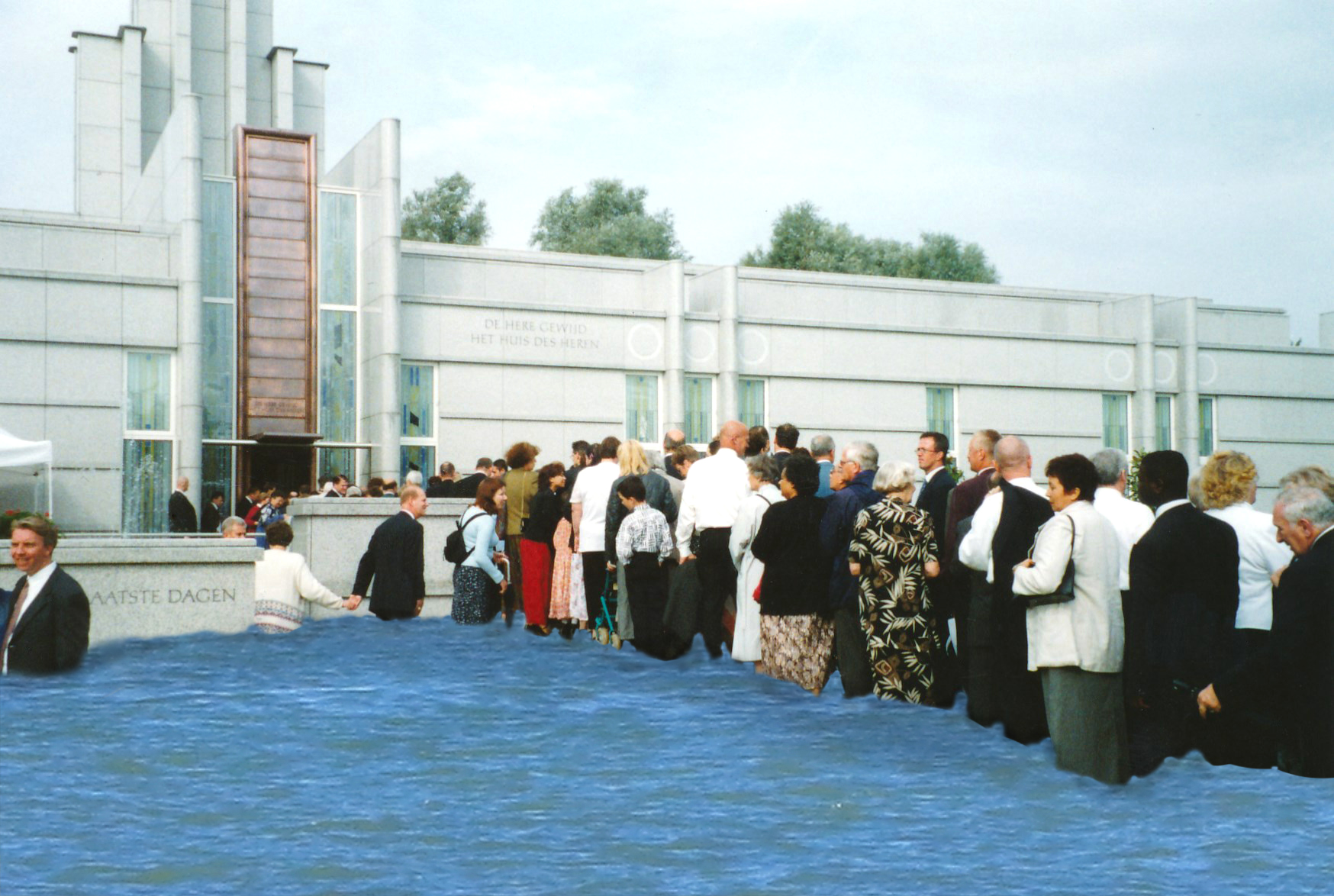
About a year ago I took the liberty of asking the Brethren what their opinion was on climate change. My reason was that we as Dutch have a temple below sea level, probably the only one in the world. How did the Brethren envisage the future of the Dutch temple, considering sea level rise due to perceived and expected climate change? As LDS temples are destined for eternity, what are the long-term perspectives of this particular House of the Lord? Is it going to be flooded when the waters rise, inundated when the ‘inconvenient truth’ hits Holland? We as Dutch… Read More
-
•
•
66 responses
What can we gather from last week’s decision from Salt Lake? The content of the Priesthood session will be made accessible in real time to anybody who wants to view it online, but the live venue will be available to men only — even, presumably, non-Priesthood-holding or -worthy men. Priesthood session, in its primary form, will remain a male-only social space. It appears that the purpose of the formerly-restricted Priesthood session was not chiefly to withhold information from women, although that was the effect, but rather to preserve a single-sex social and spiritual space. Does this suggest anything about the… Read More
-
•
•
22 responses

With very few exceptions, everyone loves the Harry Potter books. (The exceptions consist of people who cannot read and people who have no soul.) The appeal is fairly straightforward, with themes of magical escapism, coming-of-age, and friendship woven directly and beautifully throughout the narrative. Ender’s Game is also a very popular book. Although of course it’s not as widely read as Harry Potter (very little is, after all), it’s one of the best-selling and most-awarded science fiction novels of all time. The most interesting contrast between the two, however, is that whereas everyone seems to be on the same page… Read More
-
•
•
Lorenzo Snow lesson 19 highlights several purposes for missionary work in its collected statements from Snow’s discourses. Clearly bringing the gospel to others is the chief purpose of this effort. Snow also suggests in these statements that missionary work is a sacrifice that missionaries make when they are sent out into the world. Perhaps the sacrifices that Snow himself made taught him the value of missionary work and the sacrifices made. Snow’s sister evidently thought these sacrifices were important, since she made them the subject of the following poem. Read More
-
•
•
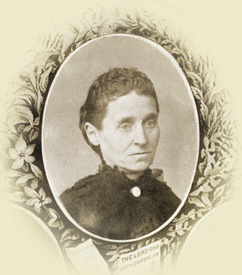
Often when we discuss the principles of welfare today, we talk as if the whole idea of welfare developed in the 1930s, along with the current program. In reality, before the current program caring for the needy, poor and promoting self-reliance were largely the purview of the Relief Society. And so it is a Song of the Sisters of the Relief Society (familiar today since it is the poem on which the current hymn, As Sisters in Zion, is based — Julie also posted here on Times and Seasons about this poem) that I present below to help us understand… Read More
-
•
•
13 responses
Here’s Mark 2:14: Read More
-
•
•
14 responses

Our Mormon faith places a great deal of emphasis on obedience, and to great (and mostly positive) effect. It’s quite common, especially in the Bloggernaccle, to fault the Church and its members for being too conformist, and as I’ve written there is some legitimacy to those complaints. But I’ve also been struck in my life–more and more as I get older–that the Church of Jesus Christ of Latter-day Saints as it exists in practical reality does a pretty darn good job of making decent folk and/or making folk decent. There’s a culture of practical service that is easy to take… Read More
-
•
•
4 responses
Here’s Mark 3:13-14: Read More
-
•
•
3 responses
In Mormonism our definition for the term Prophet is usually more specific than that employed outside of the Church. To us, a prophet is not only someone who has been inspired to prophesy, but it is also the president of the Church, the leader called to preside over the membership, the person who is to receive revelation for the Church, the chief teacher and the chief person who testifies of our Savior. There are other prophets, but we focus on THE Prophet. We didn’t always mean this in quite the same way–at least before 1848 THE Prophet was Joseph Smith,… Read More
-
•
•
66 responses

There are five things you should know about the BYU-Idaho dress code. The first thing—that BYU-Idaho has a dress code—is probably redundant, since that seems to be the only thing that people outside of Rexburg hear about BYU-Idaho. Read More
-
•
•
69 responses

Or mean that you must repeat it. Because sometimes people say things in church are are just plain not true. Read More
-
•
•
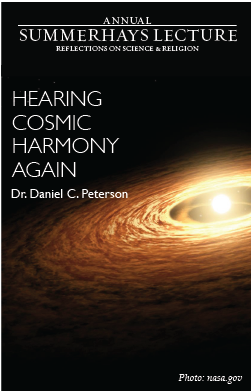
Thursday at 7pm in the JSB Auditorium at BYU, Dan Peterson will speak on how our understanding of the natural world through history has reinforced or weakened belief in God. His title for the 2013 Summerhays Lecture is “Hearing Cosmic Harmony Again.” Here is an introduction from the Summerhays Lecture web page: For many centuries, religious believers of all stripes have affirmed, in the words of the Psalmist, that “The heavens declare the glory of God; and the firmament sheweth his handy work.” But, although the Jesuit poet Gerard Manley Hopkins could still exclaim that “The world is charged with… Read More
-
•
•
72 responses

I started thinking about the phrase “stumbling block” recently. It’s such a common phrase that it’s easy to take its significance for granted. And maybe miss its meaning and current relevance. The literal meaning of the words is obvious, and “stumbling block” is in that sense basically the same phrase as “tripping rock”. But “tripping rock” is fresh and so it forces you to take a look at what the words actually mean: a stone that causes people who are walking somewhere to fall. Why should such an apparently innocuous concept be so deeply ingrained in scripture that it becomes… Read More
-
•
•
The place of Utah in LDS history is occasionally a topic of lessons like Doctrine and Covenants Gospel Doctrine lesson 36. And while today not all church members live in Utah or want to live there or feel that it is a place to admire, still, it is hard to argue with the fact that Utah played an important role in the formation of what Mormonism is today. As the lesson observes, the pioneers went to a place that no one wanted, a veritable desert, and created an impressive civilization. Its hard to say what they would think of Utah… Read More
-
•
•
12 responses
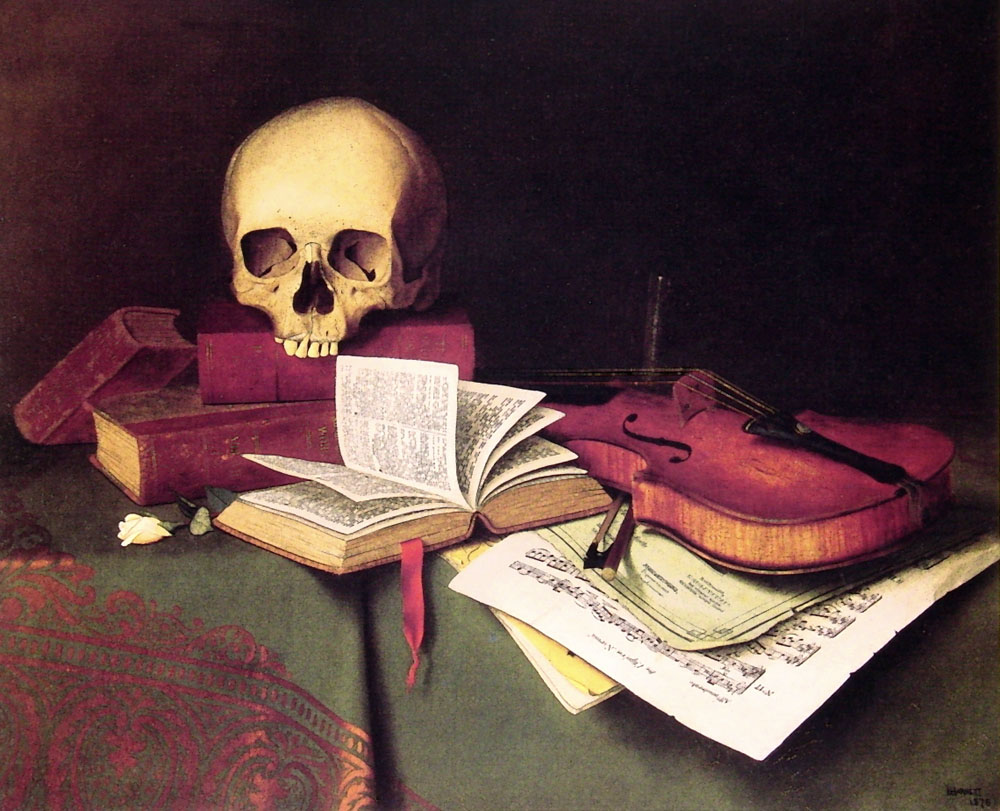
I have family members who have died recently, others who are dying, and some who tell me confidently every time we talk, “You know, I won’t be around much longer…” Read More
-
•
•
123 responses
School’s back in session. Several weeks of early mornings have burned through the summer sleep reservoir. Inevitably, the debate over school start times sputters to life, ignited this year by Secretary of Education Arne Duncan, who tweeted “Common sense to improve student achievement that too few have implemented: let teens sleep more, start school later.” Duncan’s statement references both the sleep science suggesting that teenagers’ circadian rhythms shift toward later wake and sleep times, and the small but growing initiative to delay high school bell schedules to better accommodate the students’ biological reality and, potentially, improve their academic performance. For… Read More
-
•
•
2 responses
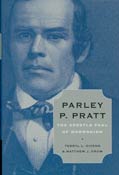
I recently finished reading Parley P. Pratt: The Apostle Paul of Mormonism (OUP, 2011), by Terryl L. Givens and Matthew J. Grow. Most Mormons know Pratt by name from reading the Doctrine and Covenants. A few Mormons have read Pratt’s autobiography, which gives some idea of the extent of his missionary travels, but provides little detail about his influential writings or his busy family life (he had 9 wives and 23 children at the time of his death). Any reader of this biography will come to appreciate just how significant a role Pratt played in the early LDS Church, almost… Read More
-
•
•

The Temple and Observatory Group, which sponsored an event in July in Provo featuring Richard Bushman, Fiona Givens, and Terryl Givens is bringing the same lineup to New York City. Come listen to the three speak about negotiating LDS history and faith challenges on Saturday, September 28th from 10am – 3:30pm at 390 Broadway 3rd floor in Manhattan. (Here’s a copy of the official flyer.) Additional events are being planned for the East Coast in coming months including Washington, D.C. (October 19) and Boston (November 9). You can visit the website to keep informed (and learn about the groups’ name)… Read More
-
•
•
13 responses

The Prisoner’s Dilemma came up in the comments to a post of mine from about a month ago. I outlined my thoughts very briefly there (see comment #12), but I’d like to return to them in more depth today. The Prisoner’s Dilemma is perhaps the most important scenario studied in game theory, and “it shows why two individuals might not cooperate, even if it appears that it is in their best interests to do so.” To understand the analysis, however, I’ll need to back up and give a very brief game theory primer. In game theory, a game is a situation where… Read More
-
•
•
2 responses

The world today treats leaders with honor and deference, giving those who manage to become leader of government and society the benefits available to the rich, while shielding them from many of the cares of life, and, at times, from their own errors and sins. Lesson 18 in the Lorenzo Snow manual makes it clear that such benefits and deference are not what Church leadership are about (and I wonder if governmental and other leadership shouldn’t also avoid these trappings). Instead, Church leadership is about serving others, and whatever benefits from that leadership should come after this life. The following… Read More
-
•
•
4 responses
In recent years the attention on the tragedy of the Martin and Willie handcart companies seems to have increased. Their situation and rescue has been the subject of books and movies (and lessons) in a process that seems to mythologize the events. The current lesson (#35 in the Doctrine and Covenants Gospel Doctrine manual) explores the saving nature of the rescue, and compares that to the Savior’s atonement and our own responsibility to save those who are lost. The following poem helps to set the stage for this discussion, describing the difficulty and the courage necessary to face it. Read More
-
•
•
37 responses

You might be surprised to learn that the church maintains not one but two large universities, including one about 280 miles north of Provo. The existence of BYU-Idaho is one of those things that seems to easily escape notice, even for Mormons in the middle of a vigorous debate about what must be done about BYU and LDS higher education. While the low level of scrutiny that BYU-Idaho receives is in general salutary for the university, it’s unfortunate for the discussions of higher education, as some of the most interesting experiments in the American university system today are being conducted… Read More
-
•
•
38 responses
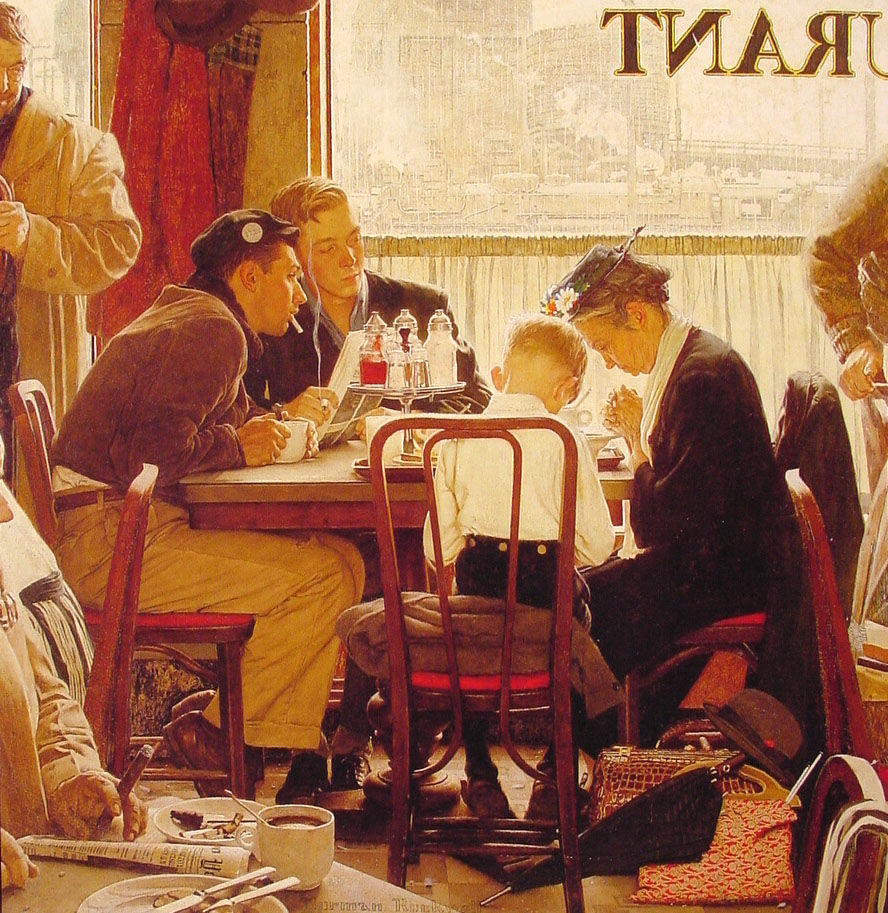
So I had every intention of posting the next installment in the Approaching Zion Project today. But Labor Day weekend (and, specifically, houseguests, the Chicago Jazz Festival, and a Cubs game) intervened and, well, I’m not ready. But Monday night’s dinner with our guests brought up a question, and I thought I’d ask for an unrepresentative sampling of answers. Read More
-
•
•
23 responses

It’s one thing to know that what you are witnessing is wrong; it’s another thing altogether to know what to do about it. I do know that inaction is often taken as tacit approval, and I do not want to be guilty of the sin of complicity Read More
-
•
•
17 responses

I often heard, growing up, that teenagers think they are immortal. I always thought this applied to other teenagers. For the most part I didn’t get into the sorts of shenanigans that make adolescence famous. I felt I had a perfectly rational aversion to death and dying that manifest itself in, among other things, a general trepidation about learning to drive. Passing other cars at a cumulative speed of 100mph with only a few inches and some yellow lines as separation is still a kind of scary thing, I think, if you stop and consider it. It wasn’t until I was… Read More
-
•
•
3 responses
When we discuss the Mormon trek, the focus is almost always on the physical suffering that many of the immigrants endured while traveling west. While certainly the physical struggle to cross the plains (covered in Doctrine and Covenants Lesson 34) was difficult, the pioneers suffered in other ways also. For example, many left family behind, generally compounded by their conversion to Mormonism, and often assuming that they would never see their family members again. The poem below describes just such a situation. Read More
-
•
•
Many of our hymns have a martial air to them, often echoed in their messages. We are called “Christian Soldiers,” marching on to war, and we call to the “Elders of Israel” to join the campaign. And often the Priesthood is called “God’s Army” in an attempt to emphasize, I suppose, its size and power and the brotherhood we often feel in the priesthood. The following poetic excerpt not only captures some of that brotherhood, but also explains clearly that this “army” is not a military, but something far different, more like what is described in Lorenzo Snow lesson #17.… Read More
-
•
•
12 responses
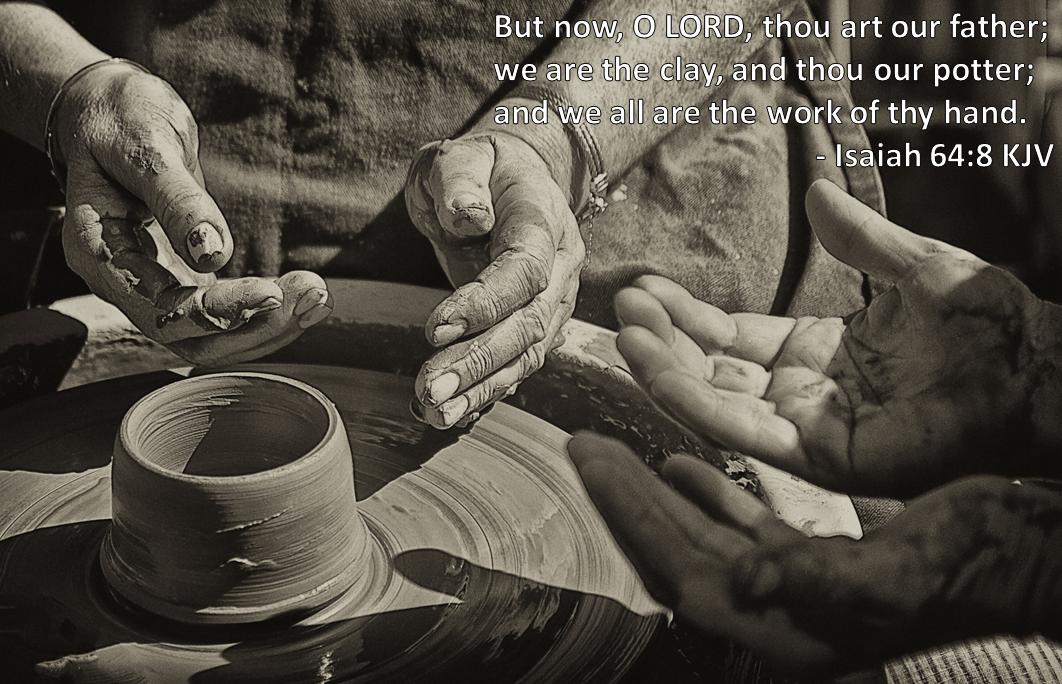
A number of years ago, a friend wrote me an email that included this reminiscence: Friday was my last day of spring break. I had worked all through the break, and really wanted to do something fun, something indulgent. I immediately thought of the only thing I have ever done when I wanted to be indulgent in past years– go to Barnes and Noble. I have always been haunted by a trip to the temple 20 or 30 years ago, and an old mission friend was along. We went to the book store, and he just loaded up with an… Read More
-
•
•
6 responses
Notice how similar these three passages are: Read More
-
•
•
We often make assumptions about the past based on our perspective today, and the current Gospel Doctrine lesson about Brigham Young and succession in the presidency is no exception. We know that the senior member of the Quorum of the Twelve becomes the new Prophet, and it is easy to assume that this was always understood. But following the martyrdom of Joseph Smith, that question was far from clear among many members of the Church. Even six months later, when this poem was written, those members who followed Brigham Young often assumed that he would remain president of the Quorum… Read More
